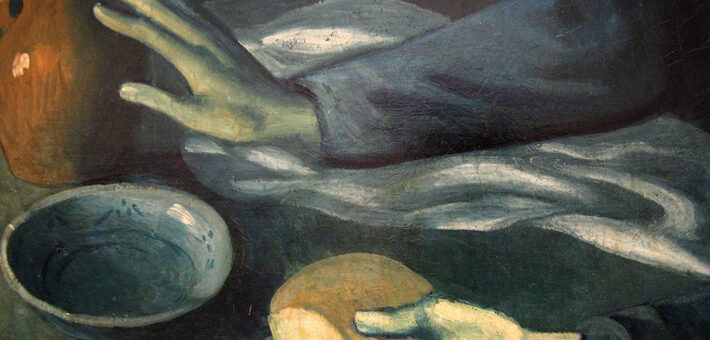Commentary on Psalm 34:9-14
How many times a day do you use the phrase “It’s all good”?
It’s an expression that’s thrown around a lot in everyday life suggesting that everything is fine, acceptable, perhaps even great. We use it to keep peace in relationships with our family, our friends, and even strangers we don’t know.
Someone hurts you; you brush it off: “It’s all good.” You make a mistake and feel embarrassed. A friend assures you: “It’s all good.” You disagree with a spouse: “It’s all good.” We all believe that these three words will actually repair the damage of an argument or anything gone wrong. We say “It’s all good,” and we imply, “I’m OK and you’re OK … don’t mess with me, and I won’t mess with you.”
The problem is that “It’s all good” actually says very little. The only real meaning it holds is that we’re trying to rise above whatever problem exists in our world. We use it because we don’t have the time, energy, or capacity to deal with the reality that things might not be good. In fact, they might be bad. How do we deal with that?
Psalm 34: Overview
Though it might be a stretch, Psalm 34:9–14 makes the statement “It’s all good.” It’s all good because YHWH is good, and YHWH has a clear interest in our lives. Even when we are at our worst and left wondering, “What are we to do now, when things aren’t good?” This psalm reminds us that we are to remember the testimony given in the first half of the psalm, verses 4–6, and we are to take comfort in a good God who is happy when people take refuge in that goodness.
Although this week’s lectionary reading excludes verses 7 and 8, it might be helpful to begin the reading of this psalm at verse 7. These two verses, along with verses 9–14, underscore a message the psalmist has emphasized and will continue to emphasize through verse 14, as well as in the remainder of the psalm (verses 15–22). God is good to us, and our well-being, in addition to our doing good, is a matter of following the ways of the Lord.
Psalm 34:9–14
Verses 7–8 begin a list of commands to taste, see, fear, come, keep, depart, and do. In this section, verses 7, 9, and 11 emphasize the reverence of YHWH among all other gods that an individual or community could choose to worship. Verses 8, 10, 12, and 14 lace the reverence of YHWH only with the good and pleasant things that may come in this life. YHWH is the source of good (verse 8), and we also should do good (verse 14). Thus, the fear of the Lord really might be the beginning of wisdom, as Proverbs and now this psalm tell us.
A word of caution may be appropriate here. One must not view the relationship of YHWH’s goodness to our goodness as a moralistic imperative only. It is helpful to understand the relationship between these two “collocations,” as described by John Goldingay:
The collocation suggests a link between the theological and the experiential; YHWH’s goodness lies in a generosity that gives good things. It suggests a link between the theological and the behavioral; doing the good thing is a matter of taking the right attitude to YHWH. It also suggests a link between the behavioral and the experiential; doing good leads to enjoying good.1
There are multiple theological, behavioral, experiential, and even ethical lessons in verses 7–14 for our understanding of the relationship between a God who is good, God’s people who want to enjoy and do good, and a world where all is sometimes good and sometimes not good.
Preaching Psalm 34
In contrast to the surrounding culture that wants to assume “It’s all good,” Psalm 34 presupposes that even those who revere and call on the name of YHWH are going to have fears, worries, and troubles. There will be times in each of our lives when, in fact, it’s not all good. In those moments, we are to follow the example of David in Psalm 34, who did not pretend that “It’s all good.” Rather, he cried to YHWH, he was heard by YHWH, and he was saved by YHWH.
In those moments of our deepest fear, worry, and trouble, we are to lean into the one and holy God, the source of all goodness. We are to approach God, knowing that we are God’s creation, God’s goodness, God’s beautiful piece of art—like a poem, a sculpture, or a musical score. And, like theologian N. T. Wright says, “The music, which we now have to play, is the genuine way of being human, laid out before us in God’s gracious design so we can follow it.” Now that’s all good.
Notes:
1 John Goldingay, “Psalm 34,” in Psalms, Volume 1–41, ed. Tremper Longman, III, Baker Commentary on the Old Testament Wisdom and Psalms (Grand Rapids, MI: Baker Academic, 2006), 480.


August 16, 2015